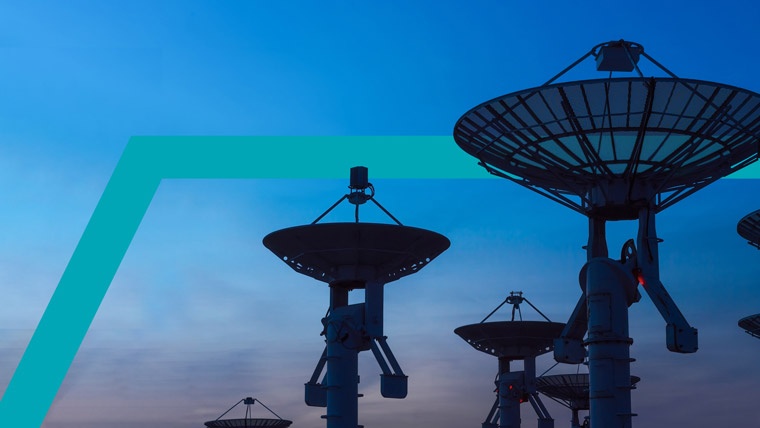Modern space missions rely not only on the capabilities of satellites and spacecraft but also on the sophistication of Earth’s supporting infrastructure. As the demand for real-time data and uninterrupted communication grows, the supporting role of ground systems has become more critical than ever.
The role of ground-based space systems in ensuring the success of orbital missions and satellite operations is paramount. As space technology advances in leaps and bounds, incorporating cutting-edge technology into the ground infrastructure for controlling satellite constellations has become a central focus. This integration heightens communication capabilities and reshapes our interaction with extraterrestrial assets, opening up new avenues for exploration and collaboration. A thorough comprehension of these advancements is essential for industries and researchers as they prepare for future challenges and capitalize on opportunities in the uncharted expanse of outer space.
Advancements in Communication Technologies
Space communication technologies have witnessed remarkable innovations that fundamentally transform connectivity between Earth and its orbital assets. The traditional reliance on radio frequency communications is now being augmented by laser communication systems, capable of transmitting data at significantly higher rates and with minimal latency. This advancement is crucial in scenarios requiring real-time communication with satellite constellations, enabling efficient data processing and management. Additionally, including fiber optics in space networks is another transformative leap, providing greater reliability and more robust communication channels that can handle unprecedented volumes of data traffic, thus enhancing the functionality and reach of these systems.
The Role of Automation in Space Systems
Implementing automation in ground-based space systems represents a clear paradigm shift concerning mission management. Automation minimizes human involvement in repetitive and error-prone tasks. Preemptive and seamless disruption mitigation is now possible with ground systems automation. Sophisticated software and hardware algorithm optimizations increase operational stability and resilience. Automation increases the ground systems’ ability to rapidly adapt to novel mission parameters to reduce system downtimes and manual configurations. Space missions are increasingly agile, with mission execution reliability, operational excellence, and success rates increasing with automation.
Challenges in Ground-Based Space Infrastructure
Ground-based space infrastructure systems remain fundamental to the operation of space assets but face numerous challenges that require urgent attention. The remaining infrastructures were built decades ago and suffer from age-related deterioration. To avoid becoming antiquated, a soft modernization infusion is needed. Planning investment strategies optimally can enable upgrades without disrupting ongoing operations. Moreover, these systems are vital for tracking and commanding space assets, making them a prime target for cybersecurity attacks, which put mission integrity at substantial risk. Protecting these critical vulnerabilities requires implementing advanced security policies that assure the commanding space operations’ framework’s integrity, confidentiality, and availability. Recent debates regarding the security of space infrastructure argue that there is an accelerated need to strengthen these systems against newly emerging risks while maintaining optimum dependability and functionality.
Future Trends in Ground Systems Technology
The potential of integrating advanced technologies, such as cloud and IoT, exceeds expectations for ground-based technologies. These technologies offer unparalleled changes in operational flexibility and scalability, enabling rapid responses to new challenges in space exploration. Using cloud-based infrastructures, ground systems can efficiently manage vast data sets, allowing for real-time analytics and sound decisions. IoT devices enhance the monitoring and control of geographically dispersed sites, elevating situational awareness and connectivity. Collectively, these technologies enhance ground station capabilities, enabling more efficient and proficient management of space operations, resulting in progress in space missions and exploration.
Impact of Artificial Intelligence on Space Systems
The impact of artificial intelligence is revolutionary in many sectors and has profoundly changed the approach to space systems. Now, routine maintenance is performed only as needed, thanks to the ability of AI algorithms to perform system health diagnostics, mitigating issues before they escalate. AI technologies allow real-time information processing at ground stations, augmenting systems management through advanced predictive intelligence. Additionally, satellites’ autonomous decision-making enhances the overall system performance by processing significant amounts of data to optimally configure satellite constellations for coverage and reduce energy usage during inactive periods. Their introduction profoundly boosts advanced operational efficiency and effectiveness of space systems within increasingly competitive environments, while operational efficiency propels them even further.
Real-Life Applications and Case Studies
More than one individual use case and cross-disciplinary collaborations showcase the value these systems bring in practicality. To illustrate, international projects like the International Space Station demonstrate the use of these technologies in the integration and execution of sophisticated aerospace missions, assisting international cooperation further alongside scientific endeavors. Such advanced ground-based technologies are also crucial to these large projects’ continued enablement and maintenance by integrating control and communications support with onboard systems. The International Space Station case studies explain how those technologies can change the ways modern space exploration is done, shifting it to a whole new level.
Conclusion: Preparing for the Next Frontier
The current era of exploration brings forth new concerns and demands systems with unparalleled sophistication, security, and resilience. Adopting modern technologies in ground-based systems will aid in alleviating current concerns while ensuring a framework for future victories, breakthroughs, and success. In stark parallel with the exploration efforts, rapid technological developments are continuously being made, and to prepare for the future, a strong vision, resolute commitment to change, and relentless pursuit of innovation are the prerequisites. Only those willing to be part of the transformative journey will lead the charge toward unexplored horizons.



